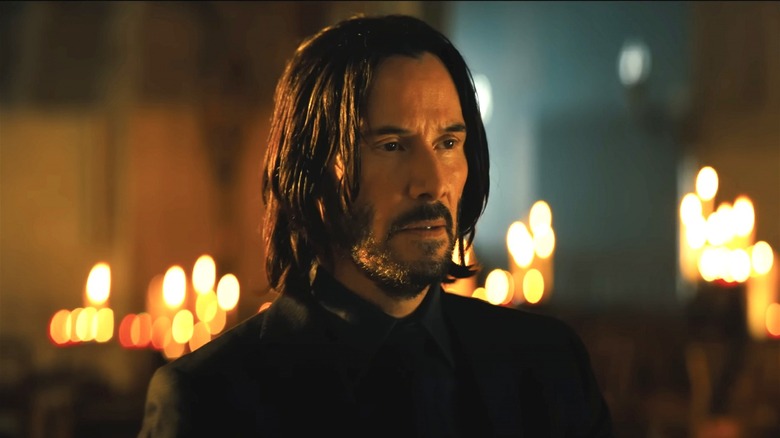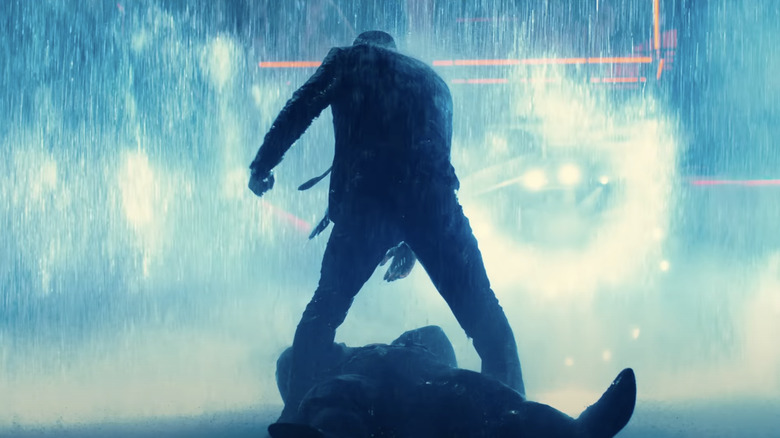How John Wick: Chapter 4 Turns A Franchise Flaw Into Its Biggest Strength
Contains spoilers for "John Wick: Chapter 4"
Strangely enough, it would actually be easy to forgive "John Wick" for being aimless. The first three films successfully hooked and maintained their audience with a simple, repeatable recipe that was only limited by Keanu Reeves' sheer will and Chad Stahelski's violent imagination. As you watch the Boogeyman stab his way out of a literal knife museum, normal narrative concerns such as progression and motivation take a back seat to the once-in-a-lifetime spectacle of it all.
In what other story would the hero deliberately provoke a horse to kick their enemy — twice? What other movie would spend nearly two minutes showing you a man falling down every single step leading toward Sacre Coeur? It's best not to sweat the little things when you revisit the Continental Hotel — to instead enjoy the ride even if you're not quite sure what's keeping it going in the first place.
Unfortunately, when one does stop to think about the finer parts of this series, it's hard to ignore one fact: John Wick is one of the most passive characters in modern cinema. In a genre defined by taking action, he spends most of the three sequels in a completely reactionary place. Instead of trying to accomplish a concrete goal, he's mostly running around trying not to die.
For a series with less to offer, this would be a damning issue. For "John Wick," it's a problem they don't really need to solve. And yet, in "John Wick: Chapter 4," they solved it anyway.
John can finally rest in peace
The narrative thrust of the original "John Wick" film is both simple and effective. John wants to kill the men that killed his dog and stole his car, and his bloodlust will not be satiated until he does so. This goal is largely accomplished by the end of the first film and completely exhausted by the opening moments of the second. In order to justify another "John Wick" adventure, then, the series runs into a minor problem: how do you organically find motivation for a character who essentially has nothing to live for? His wife is gone, his car is destroyed, and his quest for vengeance is through. What else is there for John Wick to accomplish but death?
Though the three chapters that follow the first film are each more thrilling than the last, John's lack of motivation beyond an indiscriminate thirst for violence and revenge caused the quieter, emotional beats to feel a bit weightless. In "John Wick: Chapter 4," however, characters like Caine (Donnie Yen), Winston (Ian McShane), and even the Marquis (Bill Skarsgård) finally force John to confront the emptiness of his quest. The filmmakers use the climactic duel with Caine at Sacre Coeur as a point of revelation for John; both men want to escape from underneath the High Table, but only one of them has a life to return to. It's possible, then, to read John's sparing of Caine as a recognition of this fact.
By the time John begins to succumb to his gunshot wounds, a welcome, yet unexpected feeling of closure begins to set in. Yes, there are several spin-offs in development and, yes, there's probably a chance John somehow survived. For now, at least, the series has shown the courage to close the book on the franchise's founding story in a way that acknowledges the grim truth of John's circumstances in a characteristically operatic fashion.

